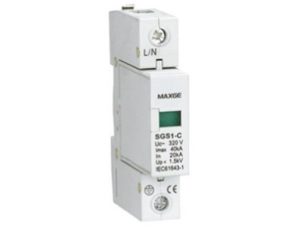In all honesty, the truth is that, LEDs don’t burn out. At least not in the manner we are used to with filament bulbs. LED luminaires gradually emit less light over time, as discussed in the article on the lifespan of a bulb. So if an LED does not burn out, why do these lighting fixtures fail?
Why does an LED bulb burn out?
One of the main causes of a bulb burn out is that LED technology needs constant voltage, if at any time a power surge is provoked, this causes the temperature of the diodes in the bulb to rise, thus melting the bulb or causing it to fail in a short period of time. Nonetheless, this is not the only reason, a bulb, or any other type of luminaire with LED technology can fail. The various reasons for these failures are as follows:
- Product defect: Undoubtedly the rarest case. It can be due to any minor error in the manufacturing process such as an internal connection that is not correct or the thermal compound between the diodes and the heat sink not being applied properly, producing an excess of heat that can damage the bulb permanently.
- Improper use: The specifications of each product correspond to the needs of a specific environment. Lighting in a shopping centre that is switched on for more than twelve hours is not the same as the lighting in a kitchen at home. We often use products for tasks that may exceed their capabilities.
- Mains power surges: LEDs need constant voltage to operate. If the voltage rises, the current flowing through the diodes will increase and they will overheat and fail in a short period of time.
- Mixing lights with various technologies: LEDs are very efficient, but they do not get along well with other types of lighting such as fluorescent and similar lighting, as the latter require high voltage to ignite and this surge of voltage can affect the LEDs and drastically reduce their lifespan.
- Overheating: Not all LEDs are designed to operate in enclosed luminaires. In enclosed luminaires there is little to no possibility for air to properly circulate and this causes the internal temperature of the bulb to rise above the recommended guidelines.
- Problems with the installation: The installation must be in a condition not only for the lighting elements to work properly, but also the rest of the electrical appliances. The main problems are often the quality of the wiring, the connections and the absence of earthing.
How to extend the life of LED lamps?
By avoiding the above scenarios, which can negatively affect the longevity of the LED, you can tremendously extend its lifespan.
Before purchasing a luminaire, you must consider what you are going to use it for. For example, you can install a conventional downlight in a bathroom or one that is specially designed for this type of space. Chances are that both will work properly, however, the moisture and humidity in the shower will eventually affect the conventional luminaire, as it is not designed to withstand the conditions of this type of environment.
To prevent surges due to the quality of the power supply or natural elements, such as a lightning storms, we can install surge protectors for permanent or transient surges, depending on the case.

In every lighting circuit, make sure not to mix LEDs with Fluorescents, in such cases it is advisable to replace all or none of the bulbs.
A little hack to prolong the life of the LED is to operate it below its capacity. If you run a bulb at 70% of its maximum brightness it will be operating at a lower temperature which will prolong its life. When it reaches the end of its life cycle, when it starts to light at a lower level, run it at 100% and it will light properly again. This is very easy to achieve with dimmable LEDs.
As we already know, LED lights are much more durable than conventional lighting. We all have heard of cases where bulbs last only a short time and now you are aware of why. If you buy our LED luminaires from reputable professionals who offer products with a warranty, it is very rare for them to be faulty. If several of them fail or burn out frequently, it is advisable to check our electrical installation.

